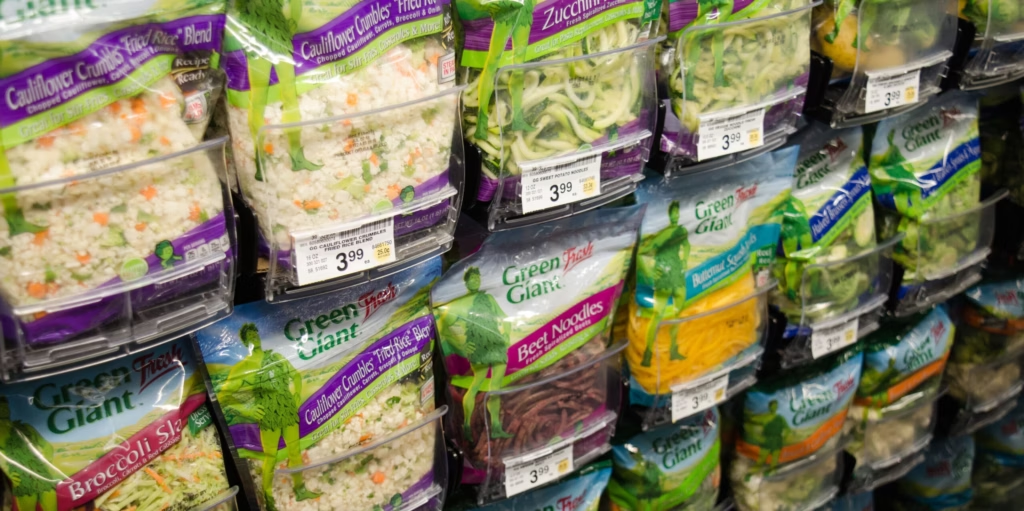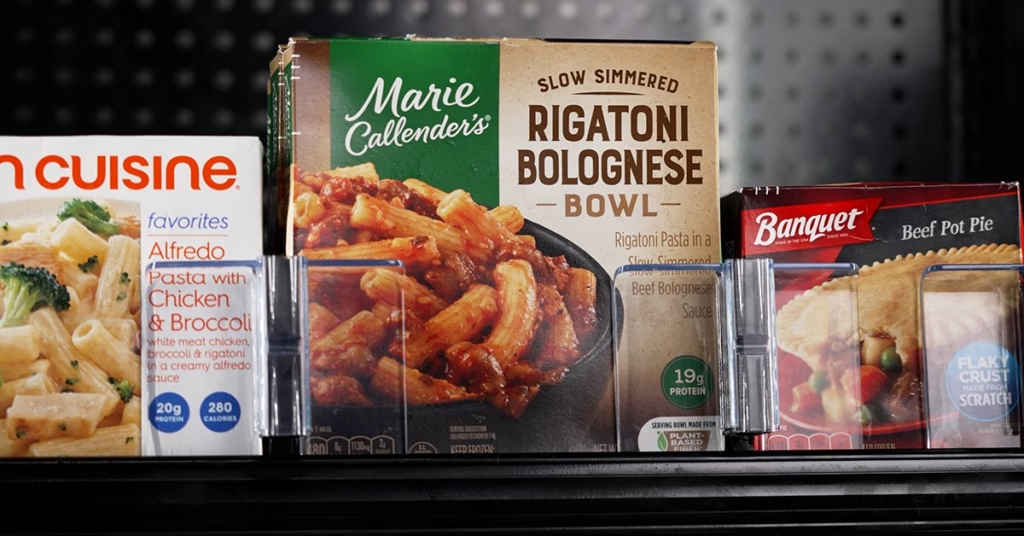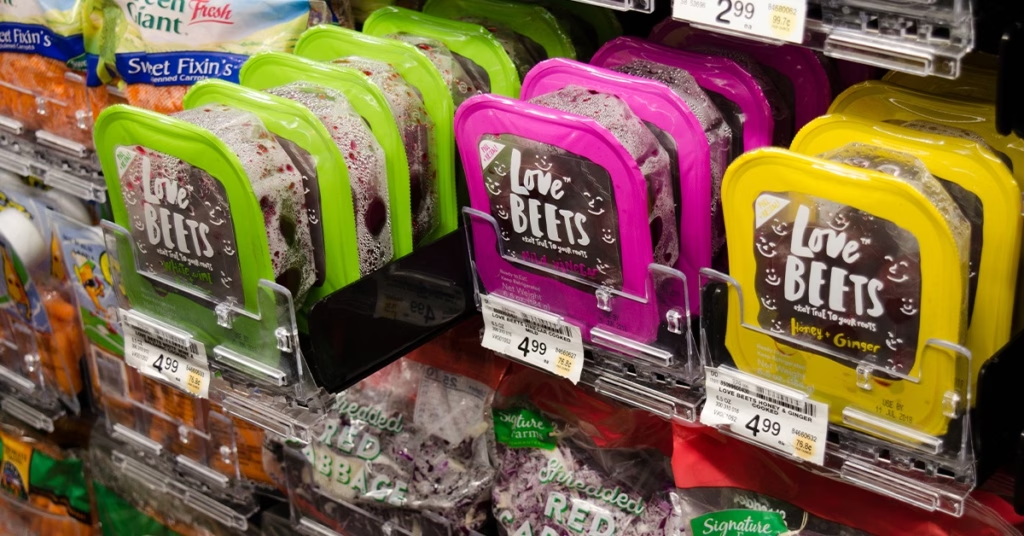Produce now represents one-third of all fresh sales and is a key driver of in-store visits, according to Grocery Dive. This is supported by a 2019 Nielsen study, which concluded that with 95% of shoppers preferring to buy their produce in-store, produce sales grew 2.6% between 2018 and 2019.
Here are 5 trends we see in retail produce sales in 2020:
1: Veggies are taking center plate
The plant-based diet movement has grown tremendously, and many food companies have begun offering products designed to be used as sustainable, wholesome substitutes for rice, pasta and several forms of meat. Popular items include cauliflower “rice,” zucchini “noodles” and “meat alternatives” made from bean and vegetable proteins.
2: Packaged produce is leading the way
The appetite for packaged produce, including salad blends and commodity crops such as berries and tomatoes, will continue to grow in 2020, mainly because of convenience. According to Produce Blue Book, “Many recent innovations are focused on convenience, making it easier for consumers to grab and go, with ready-to-eat items requiring little to no prep.” Pusher display systems, such as SpaceGrid® II from Retail Space Solutions, are designed to keep packaged produce front-faced and neat on the shelf for easy product selection.
3: Open market design to create an authentic shopping experience
Store design affects the way people shop. Case in point is Walmart, which is resetting its produce sections in hopes of enhancing the shopping experience. Walmart is calling the initiative Produce 2.0, which includes more space, a wider variety of products and value-added signage. Shorter merchandise bins create an “open market” feel similar to local farmers markets. Organic items will be grouped together, and aisles will be widened to accommodate traffic.
4: In-store farms cultivate fresh seasonal produce year-round
New technologies are giving a truer meaning to “farm to table” dining. Hydroponic farming—a method used to grow plants in soil-less environments—is being implemented in grocery stores and restaurants around the world to harvest fresh produce directly on-site. Kroger is one of many top retailers installing the miniature self-contained farms in its stores. These farms, created by German agriculture technology company Infarm, eliminate the supply chain and give retailers more control over the quality and quantity of produce available.
5: Transparency matters to mindful consumers
As consumers are growing more environmentally- and health-conscious, they are becoming hungrier for information about what they’re buying—and eating. Now more than ever, consumers are craving transparency in their grocery shopping. Retail signage and labels will contain information about the produce being offered as consumers want to know the environmental impact of what they eat, the origins of their produce and whether crops they buy are organic, fair trade or non-GMO.



